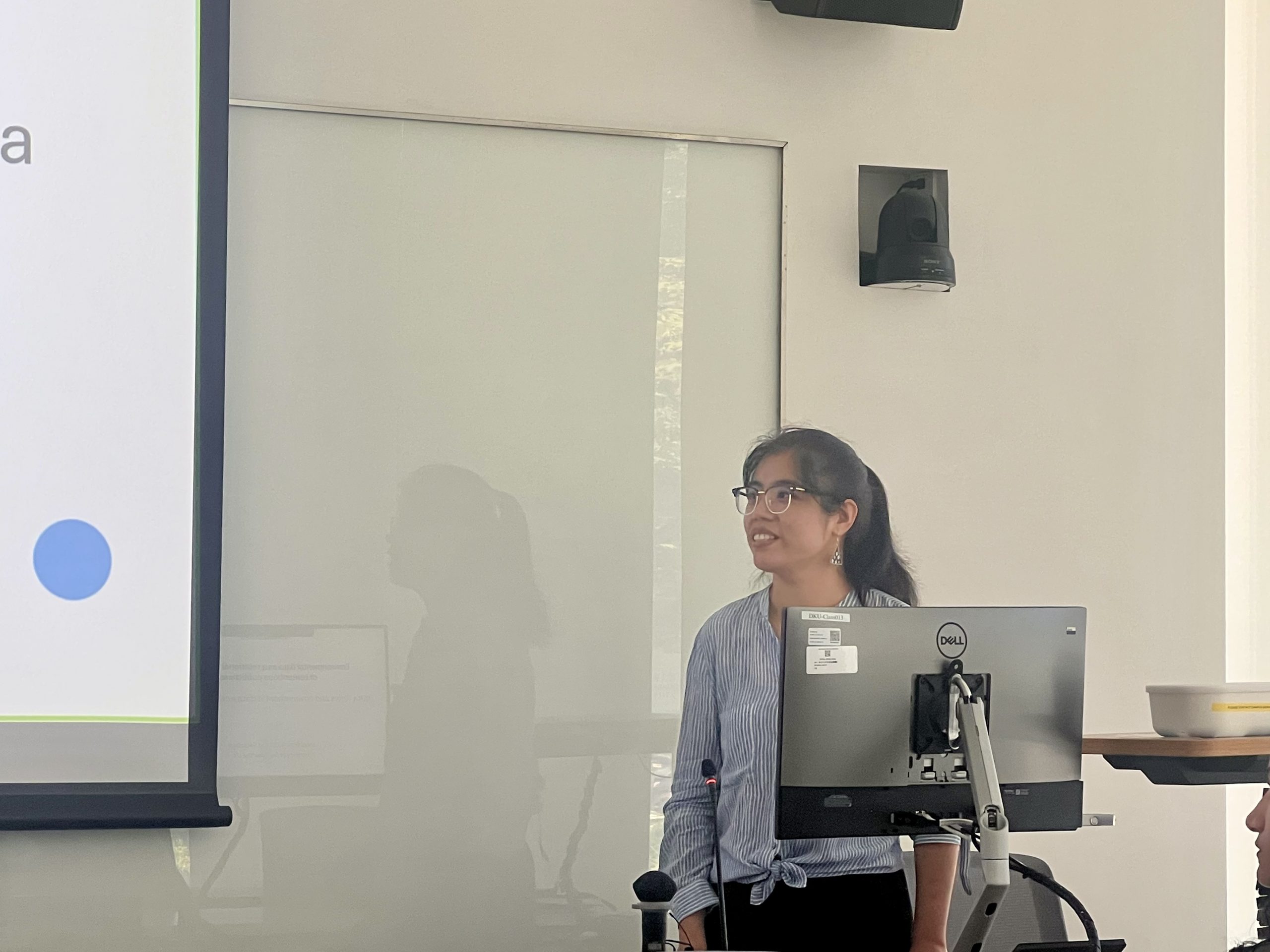By Zihan Chen, Class of 2026
On August 19, 2025, the Center for the Study of Contemporary China hosted Dr. Yu Sun for an insightful lecture on the strategic application of data technologies such as software, data hacking, visualization and crowdsourcing, to advance social justice.

The main part of the talk was about the Institute of Public and Environmental Affairs (IPE), a Beijing-based environmental nongovernmental organization (ENGO) founded in 2006 which released the Bluemap app in 2013. Dr. Sun explained that IPE had been able to aggregate environmental data collected by more than 3,000 state-built air monitoring stations and local environmental protection bureaus (EPBs), and provide it to more than 3.5 million users with 20,000 active on a daily basis. She illustrated the capabilities of Bluemap using bright slides: maps and graphs, tracking of factory pollution, and citizen-reported data as alternative evidence. As an example, she mentioned a case in Guangzhou in which citizens reported pollution of the river, indicating the use of data in micro-monitoring. The method of IPE promotes cooperation, relaying the voice of the people into the policy-making process within legal and political boundaries.
Her lecture was complemented with rich visuals, such as timelines of disclosures of enterprise data, pollution maps, and diagrams of the relationships between state power and civil society. Dr. Sun creatively interwove stories of her fieldwork, which raised a lot of debates among participants on the sustainability of such activism and how it would translate to the global setting. Her presentation demystified difficult sociopolitical concepts by showing how data infrastructure does not only keep track of the environmental problem but also mediates the notion of publicness that questions the Western-centric understanding of datafication.
Students and faculties later contributed to the discussion, discussing questions about how government action and central-local relations contributed to or affected the situation in different ways.
This event is part of the Guest Lecture Series of the Center for the Study of Contemporary China.


